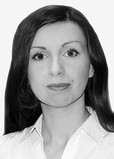Peculiarities of regional development of sport tourism
Фотографии:
ˑ:
J.A. Karvunis1
E.V. Negodenko1
Dr.Med., Professor L.V. Kapilevich1
1National Research Tomsk State University, Tomsk
Sport tourism has lately been increasingly popular in the RF to evolve into a new national sport discipline catering for the present communal and individual values, priorities and demands. Sport tourism requires a harmonized knowledgebase, skills and experience for success in the trekking events in rough terrains; high physical fitness to cope with the natural obstacles and demonstrate high performance in extreme environmental conditions. We analyze the regional developmental specifics for each sport tourism event and local attraction for the sport tourists in the Siberian Federal Region.
The first stage of the study was designed to interview members of 10 sport tourist clubs across the Siberian Federal Region to produce a sport-specific questionnaire survey form. The second stage of the study included an online questionnaire survey of a broad sample in the local sport tourism sector. Sampled for the survey were amateur sport tourists (n=180, including 126 workers, 41 student, 7 unemployed and 6 retired individuals) provisionally split up into three groups by the actual experiences/ sport records.
The survey data were analyzed to find the regional progress specifics for each of the types of sport tourism and identify the top sport tourist attractions in the Siberian Federal Region. It was found that hiking, mountain and caving sport tourism are the most well developed and promising type of sport tourism in the region, with the Republic of Altai, the Republic of Khakassia and Krasnoyarsk Territory offering the best sport tourism attractions for further progress of the sport discipline.
Keywords: sport tourism, Siberia, regional specifics.
References
- Ivanova S.V., Manzheley I.V. Organizatsiya fizkulturno-sportivnoy raboty po mestu zhitel'stva na munitsipalnom urovne [Municipal organization of physical education and sports activities]. Teoriya i praktika fiz. kultury, 2013, no. 2, pp. 42-47.
- Tajmazov V.A., Fedotov Yu.N. Teoriya i metodika sportivnogo turizma [Theory and methodology of sports tourism]. M.: Sovetskiy sport publ., 2014. 424 p.
- Humphreys C. Understanding how sporting characteristics and behaviours influence destination selection: a grounded theory study of golf tourism. Journal of Sport and Tourism. 2014, Vol. 19, Iss. 1, P.29-54.
- Karvunls Yu.A., Kapilevich L.V. State and prospects of development of active tourism among youth of Tomsk region. Teoriya i Praktika Fizicheskoy Kultury 2014. no. 10. pp. 62-65.
- Karvunis J.A., Kapilevich L.V. Specificity of fitness and recreational programs in children and youth tourism. Teoriya i Praktika Fizicheskoy Kultury. 2016. no.2. pp.86-87.
- Karvunis Yu.A., Kapilevich L.V. General cultural competence building at sport and health tourism sessions.Teoriya i Praktika Fizicheskoy Kultury. 2016. no. 6. pp.89-90.
- Karvunis Y.A., Kapilevich L.V. Basics of sport and health tourism: Optional school course effiсiency rating. Teoriya i Praktika Fizicheskoy Kultury. 2016.no.12. pp.87-88.
- Karvunis Y.A., Kapilevich L.V. Team building concept as safety factor in sport tourism. Teoriya i Praktika Fizicheskoy Kultury. 2017. no.6. pp.89-90.



 Журнал "THEORY AND PRACTICE
Журнал "THEORY AND PRACTICE